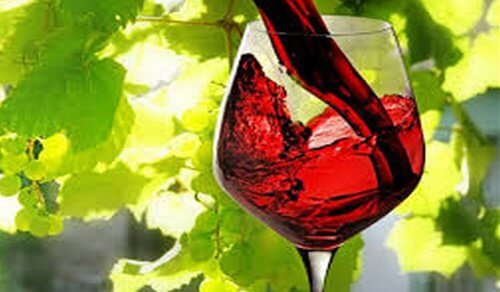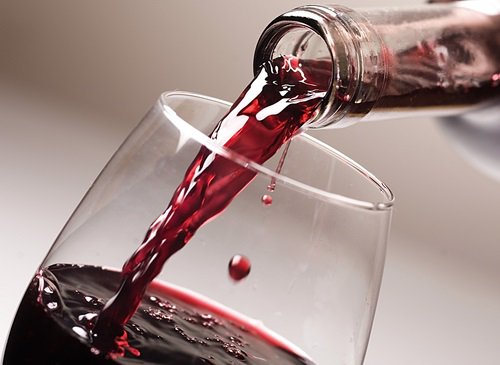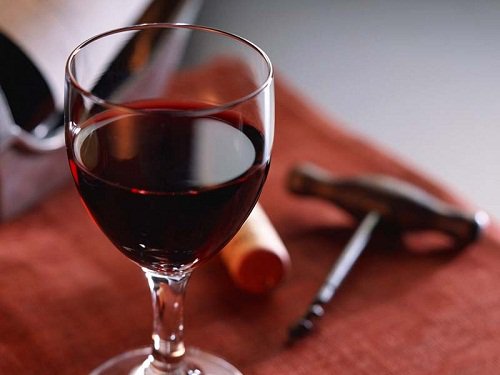Is A Glass of Wine Equivalent To An Hour of Exercise?

On numerous occasions, we’ve heard about the great benefits of drinking a glass of wine a day. This gives us just more reasons to enjoy this delicious beverage that has delighted palates for centuries.
But how exactly is wine beneficial for your body? Today we will explain the ways in which drinking a glass of wine a day will improve your health. Hopefully, this will inspire you to always keep a bottle at home.
Is a glass of red wine as good as exercise?
According to a recent study by a team of researchers from the University of Alberta (Canada), wine is incredibly beneficial. Red wine is rich in a compound called resveratrol, which may increase heart rate and muscle performance.

The team found that high doses of resveratrol improve physical performance, heart function, and muscle strength. Still, this is not to say you can skip the gym and avoid exercises just by drinking wine, it’s just an ally for your overall performance and health.
Therefore, drinking red wine combined with the intake of other healthy foods like fruits and nuts can increase the performance of people who exercise regularly, giving them an additional positive result.
With this discovery, the researchers have now begun to test the effects of resveratrol on people who have diabetes and heart problems to determine whether it may improve heart health.
Read more: 7 Heart-healthy Foods for Women
Other benefits of red wine that are worth remembering

Since we’re talking about the benefits of drinking a glass of red wine a day, it’s worth listing all of the great effects it can have on your health. Hence, among its main benefits are:
- Reducing the risk of coronary heart disease and stroke (the blockage of an artery in the brain), as well as atherosclerosis (hardening of the arteries).
- Red wine’s antioxidant content helps fight bad cholesterol and boosts good cholesterol levels.
- Strengthening the immune system to fight infections and reduce the effects of allergies.
- Vitamins and antioxidants help nourish the skin. Drinking red wine every day can help prevent the early signs of aging.
- Improving circulation by thinning the blood, which also reduces inflammation.
- Providing a good amount of vitamins and minerals, as well as trace elements like magnesium, zinc, lithium, calcium, iron, and potassium.
- Reducing the risk of high blood pressure and diabetes.
- Improving dental health thanks to the natural antioxidant levels that can slow the growth of bacteria.
- Improving memory.
- Red wine may also help people with Alzheimer’s, and those who are at risk for this disease. This is thanks to its content of antioxidants, which fight aging and brain degeneration.
- Daily consumption of red wine may also help fight cancer. Several studies have shown that the flavonoids found in red wine could be key in the prevention of prostate cancer.
- The antioxidants in red wine might protect against eye diseases; macular degeneration and diabetic retinopathy are some examples.
You may be interested in:
Protect Your Eyes From Macular Degeneration With These 7 Foods
Important!

While red wine is a healthy addition to your diet, that doesn’t mean you can drink it in excess. Above all, remember that to take advantage of all the benefits, you should consume this beverage in moderation; never exceed two glasses a day. Excessive alcohol consumption can lead to serious liver problems and other health issues.
All cited sources were thoroughly reviewed by our team to ensure their quality, reliability, currency, and validity. The bibliography of this article was considered reliable and of academic or scientific accuracy.
- Sung, M. M., Byrne, N. J., Robertson, I. M., Kim, T. T., Samokhvalov, V., Levasseur, J., … Dyck, J. R. B. (2017). Resveratrol improves exercise performance and skeletal muscle oxidative capacity in heart failure. American Journal of Physiology-Heart and Circulatory Physiology. https://doi.org/10.1152/ajpheart.00455.2016
- Sheth, S., Jajoo, S., Kaur, T., Mukherjea, D., Sheehan, K., Rybak, L. P., & Ramkumar, V. (2012). Resveratrol Reduces Prostate Cancer Growth and Metastasis by Inhibiting the Akt/MicroRNA-21 Pathway. PLoS ONE. https://doi.org/10.1371/journal.pone.0051655
- Bastianetto, S., Ménard, C., & Quirion, R. (2015). Neuroprotective action of resveratrol. Biochimica et Biophysica Acta – Molecular Basis of Disease. https://doi.org/10.1016/j.bbadis.2014.09.011
- Nakata, R., & Inoue, H. (2014). Resveratrol and Cardiovascular Disease. Current Nutrition Reports. https://doi.org/10.1007/s13668-014-0084-4
This text is provided for informational purposes only and does not replace consultation with a professional. If in doubt, consult your specialist.








